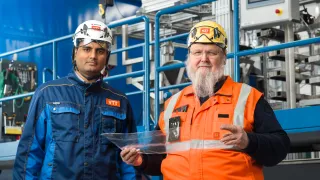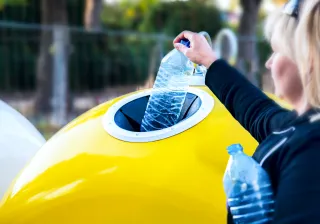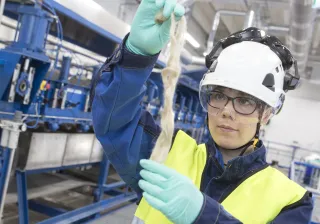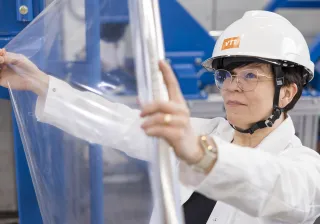Mass production of sustainable packaging materials for the food industry could lead to solving the sustainability challenges of one of the most commonly used plastics.
VTT Technical Research Centre of Finland announces that they have invested €1.5 million into their CelluloseFilms pilot facility, which is ready to scale up the production methods of renewable cellulose alternatives. The new material is designed to replace the plastic film used in most modern food packaging. The investment will allow the plant to begin its operations of testing and developing processes that enable the mass production of these films for the packaging industry.
Single-use bags, plastic bottles, food containers and food wrappers are the four most widespread items polluting the seas, making up almost half of human-made waste.
The see-through plastic film has been used in global food packaging, such as bread and candy, for decades to protect food and minimise waste. However, thin plastic films are difficult to recycle because they are made of multiple plastic layers, making them difficult to separate. Because of this, they usually end up in landfills after use.
“Polypropylene film is one of the world’s most used polymers and the market is expected to grow by €15 billion by 2035. It’s so useful in keeping food fresh that the world can’t do without it. However, there is a great need to replace it with a more sustainable alternative as it usually ends up polluting the environment after a very short time in use. The new facility is a step forwards in making sustainable materials more mainstream in an industry heavily reliant on packaging materials,” says Ali Harlin, Research Professor at VTT.
With the pilot facility, VTT aims to further accelerate sustainable packaging options in the food industry by developing new material solutions that meet customers’ needs. The facility’s goal is to develop easily recyclable cellulose-based film-like materials for food packaging and bio-based barrier materials for films, paper and cardboard.
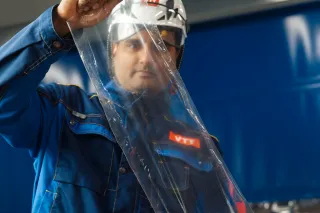
Plastic film packaging materials are in high global demand because they are highly effective at protecting food and other fragile contents. Worldwide efforts to minimise food spoilage result in a considerable carbon footprint due to the heavy usage of plastic wrap. To date, there is no other viable, sustainable alternative on the market. The pilot facility is unique because it will enable the production upscaling of cellulose-based alternatives to plastic wrap.
“So far, we have received feedback from our customers that they can’t tell the difference between our cellulose-based films and traditional plastic wraps. Plastic wraps have been absolutely essential to the packaging industry since the 1940s, but the world is well overdue for a better alternative. We’re very excited to create new processes to produce plastic film alternatives,” says Harlin.
The pilot’s focus is on improving the barrier properties, manufacturing packages from the materials, and the commercial utilisation of the material solutions in emerging value chains. It is estimated that the packaging material could be in extensive industrial use in five years.
VTT is already working with over 30 Finnish and international companies that are interested in the next generation of sustainable film solutions.
VTT first announced that it had developed a sustainable alternative for plastic film in June 2022.
